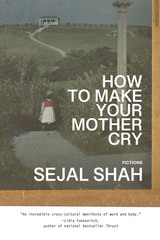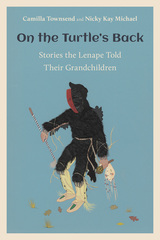
On the Turtle’s Back is the first collection of Lenape folklore, originally compiled by anthropologist M. R. Harrington over a century ago but never published until now. In it, the Delaware share their cherished tales about the world’s creation, epic heroes, and ordinary human foibles. It features stories told to Harrington by two Lenape couples, Julius and Minnie Fouts and Charles and Susan Elkhair, who sought to officially record their legends before their language and cultural traditions died out. More recent interviews with Lenape elders are also included, as their reflections on hearing these stories as children speak to the status of the tribe and its culture today. Together, they welcome you into their rich and wondrous imaginative world.
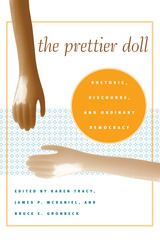
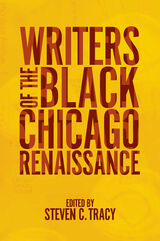
The volume covers a vast collection of subjects, including many important writers such as Richard Wright, Gwendolyn Brooks, and Lorraine Hansberry as well as cultural products such as black newspapers, music, and theater. The book includes individual entries by experts on each subject; a discography and filmography that highlight important writers, musicians, films, and cultural presentations; and an introduction that relates the Harlem Renaissance, the White Chicago Renaissance, the Black Chicago Renaissance, and the Black Arts Movement.
Contributors are Robert Butler, Robert H. Cataliotti, Maryemma Graham, James C. Hall, James L. Hill, Michael Hill, Lovalerie King, Lawrence Jackson, Angelene Jamison-Hall, Keith Leonard, Lisbeth Lipari, Bill V. Mullen, Patrick Naick, William R. Nash, Charlene Regester, Kimberly Ruffin, Elizabeth Schultz, Joyce Hope Scott, James Smethurst, Kimberly M. Stanley, Kathryn Waddell Takara, Steven C. Tracy, Zoe Trodd, Alan Wald, Jamal Eric Watson, Donyel Hobbs Williams, Stephen Caldwell Wright, and Richard Yarborough.


Media in Europe Today provides a comprehensive overview of European media in its current state of transformation. Through a focus on specific European media sectors, it assesses the impact of new technologies across industries and addresses a wide range of practices, strategies, and challenges facing European media today. The Euromedia Research Group has more than twenty years of experience in the observation of trends affecting media today, and this book marks the strong continuation of that long tradition.
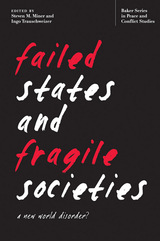
Since the end of the Cold War, a new dynamic has arisen within the international system, one that does not conform to established notions of the state’s monopoly on war. In this changing environment, the global community must decide how to respond to the challenges posed to the state by military threats, political and economic decline, and social fragmentation. This insightful work considers the phenomenon of state failure and asks how the international community might better detect signs of state decay at an early stage and devise legally and politically legitimate responses.
This collection of essays brings military and social historians into conversation with political and social scientists and former military officers. In case studies from the former Yugoslavia, Somalia, Iraq, and Colombia, the distinguished contributors argue that early intervention to stabilize social, economic, and political systems offers the greatest promise, whereas military intervention at a later stage is both costlier and less likely to succeed.
Contributors: David Carment, Yiagadeesen Samy, David Curp, Jonathan House, James Carter, Vanda Felbab-Brown, Robert Rotberg, and Ken Menkhaus.
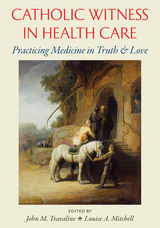
Catholic Witness in Health Care integrates the theoretical presentation of Catholic medical ethics with real life practice. It begins with fundamental elements of Catholic care, touching upon Scripture, moral philosophy, theology, Christian anthropology, and pastoral care. The second part features Catholic clinicians illuminating authentic Catholic medical care in their various medical disciplines: gynecology and reproductive medicine, fertility, pediatrics, geriatrics, critical care, surgery, rehabilitation, psychology, and pharmacy. Part three offers unique perspectives concerning medical education, research, and practice, with an eye toward creating a cultural shift to an authentically Catholic medical ethos.
Readers of this book will learn essential elements upon which the ethics of Catholic medical practice is founded and gain insights into practicing medicine and caring for others in an authentically Catholic way.
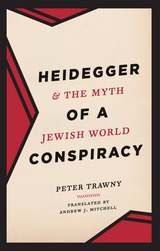
While Heidegger’s affiliation with National Socialism is well known, the anti-Semitic dimension of that engagement could not be fully told until now. Trawny traces Heidegger’s development of a grand “narrative” of the history of being, the “being-historical thinking” at the center of Heidegger’s work after Being and Time. Two of the protagonists of this narrative are well known to Heidegger’s readers: the Greeks and the Germans. The world-historical antagonist of this narrative, however, has remained hitherto undisclosed: the Jews, or, more specifically, “world Judaism.” As Trawny shows, world Judaism emerges as a racialized, destructive, and technological threat to the German homeland, indeed, to any homeland whatsoever. Trawny pinpoints recurrent, anti-Semitic themes in the Notebooks, including Heidegger’s adoption of crude cultural stereotypes, his assigning of racial reasons to philosophical decisions (even undermining his Jewish teacher, Edmund Husserl), his endorsement of a Jewish “world conspiracy,” and his first published remarks on the extermination camps and gas chambers (under the troubling aegis of a Jewish “self-annihilation”). Trawny concludes with a thoughtful meditation on how Heidegger’s achievements might still be valued despite these horrifying facets. Unflinching and systematic, this is one of the most important assessments of one of the most important philosophers in our history.

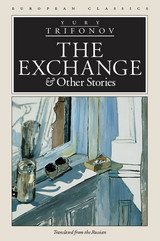
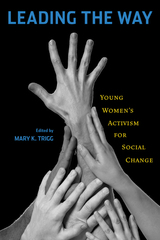
Bringing together graduates of a women's leadership certificate program at Rutgers University's Institute for Women's Leadership, these essays provide a contrasting picture to assumptions about the current death of feminism, the rise of selfishness and individualism, and the disaffected Millennium Generation. Reflecting on a critical juncture in their lives, the years during college and the beginning of careers or graduate studies, the contributors' voices demonstrate the ways that diverse, young, educated women in the United States are embodying and formulating new models of leadership, at the same time as they are finding their own professional paths, ways of being, and places in the world. They reflect on controversial issues such as gay marriage, gender, racial profiling, war, immigration, poverty, urban education, and health care reform in a post-9/11 era.
Leading the Way introduces readers to young women who are being prepared and empowered to assume leadership roles with men in all public arenas, and to accept equal responsibility for making positive social change in the twenty-first century.
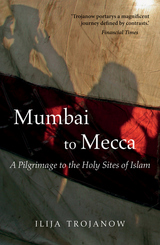
This book presents Ilija Trojanow’s journey from Mumbai to Mecca in the tradition of the rihla, one of the oldest genres of classical Arabic literature, describing the Hajj, the pilgrimage to the holy sites of Islam. Every Muslim, regardless of geographical location, is implored by tradition to undertake the Hajj at least once in their life if they are able. Trojanow, with the help of his friends, donned the ihram, the traditional garb of the pilgrim, and joined the hundreds of thousands of Muslims who each year go on the Hajj. Over the course of a mere three weeks he experienced a tradition dating back over a thousand years. This personal and enlightening account will provide insights not only for Muslims who have yet to embark on the Hajj, but for those who have already made the journey and want to see a different perspective on it. Mumbai to Mecca also presents a unique glimpse into this pivotal tradition for those non-Muslims who remain barred from the most holy Muslim sites.
the pilgrimage to the holy sites of Islam, through the eyes of a Westener, but with the heart of a Muslim.
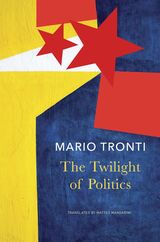
Italian political thinker Mario Tronti is most famous for being the author of Workers and Capital, which became the central theoretical formulation of Italian operaismo or workerism, a current of political thought emerging in the 1960s that revolutionized the institutional and extra-parliamentary Left in Italy and beyond. In The Twilight of Politics, written originally in 1998, Tronti argues that modern politics, which reached its apogee in the twentieth century, has ended.
Realism and Utopia, Tronti explains, were the foundational qualities of modern politics, which it always tried to clasp together. But behind this highwater mark of politics was a history over the longue durée, encompassing the wars of religion, Hobbes’ Leviathan, revolution, great individuals, and popular movements, as well as innovations such as the nation-state and the party-form. Historically, the modern period is also a coming together of the categories of the political and the laws of political economy. At the heart of this book is Tronti’s attempt to hold together a view of the course of political history with a critique of the “dictatorship of the present” to help us escape being “chained to the bars of an eternal present . . . which deprives us both of the freedom to look back and to see ahead.”

Autobiography of Silas Thompson Trowbridge M.D. is a remarkable account of nineteenth-century medicine, politics, and personal life that recovers the captivating experiences of a Civil War–era regimental surgeon who was also a president of the Illinois State Medical Society and a United States consul in Mexico. First published in 1872 by Trowbridge’s family and even printed on a family-owned press, only a handful of copies of the initial publication survive. In this first paperback edition, Trowbridge’s memoirs are reprinted as they originally appeared.
Indiana-born Trowbridge moved to Illinois in his early twenties. A teacher by trade, he continued that career while he began the study of medicine, eventually starting a medical practice near New Castle, which he later moved to Decatur. Though respected by the community, Trowbridge lacked an authentic medical degree, so he enrolled in a four-month course of medical lectures at Rush Medical College in Chicago. Autobiography describes the atmosphere of the medical school and delineates Trowbridge’s opinions on the lack of quality control in medical colleges of the day.
Although three years of study and two annual terms of sixteen weeks were the actual requirements for the degree, Trowbridge was allowed to graduate after a single course of lectures and completion of a twenty-page thesis due to his previous experience. He then married a young widow and returned to Decatur, where he began a partnership with two local physicians and inaugurated a county medical society. In addition to practicing medicine, he was known and respected for regulating it, too, having supported legislation that would legalize dissection and prohibit incompetent persons from practicing medicine.
In 1861, Trowbridge began service as a surgeon of the 8th Illinois Volunteer Infantry commanded by Colonel Richard J. Oglesby. Autobiography describes his experiences beginning in Cairo, Illinois, where the infantry was involved in several expeditions and where Trowbridge made his “debut at the operating table.” Revealing a litany of surgical duties, replete with gruesome details, these war-time recollections provide a unique perspective on medical practices of the day. Likewise, his commentaries on political issues and his descriptions of combat serve to correct some of the early written histories of the war’s great battles.
After receiving an honorable discharge in 1864, Trowbridge returned to Decatur to resume his partnership with Dr. W. J. Chenoweth and devote himself to surgery. His reminiscences recount several difficult surgeries, his efforts to reorganize the county medical society (which had collapsed during the war), and his communications to the Illinois legislature to set higher qualifications for practicing physicians. He was later elected president of the Illinois State Medical Society and appointed by President Grant United States Consul to Vera Cruz on the eastern coast of Mexico, where he studied and challenged the treatment of yellow fever. The autobiography ends in 1874 with a six-day family vacation and the marriage of his daughter to a merchant of Vera Cruz.
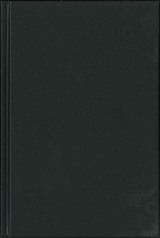
What should be done with minors who kill, maim, defile, and destroy the lives of others? The state of Texas deals with some of its most serious and violent youthful offenders through “determinate sentencing,” a unique sentencing structure that blends parts of the juvenile and adult justice systems. Once adjudicated via determinate sentencing, offenders are first incarcerated in the Texas Youth Commission (TYC). As they approach age eighteen, they are either transferred to the Texas prison system to serve the remainder of their original determinate sentence or released from TYC into Texas’s communities.
The first long-term study of determinate sentencing in Texas, Lost Causes examines the social and delinquent histories, institutionalization experiences, and release and recidivism outcomes of more than 3,000 serious and violent juvenile offenders who received such sentences between 1987 and 2011. The authors seek to understand the process, outcomes, and consequences of determinate sentencing, which gave serious and violent juvenile offenders one more chance to redeem themselves or to solidify their place as the next generation of adult prisoners in Texas. The book’s findings—that about 70 percent of offenders are released to the community during their most crime-prone years instead of being transferred to the Texas prison system and that about half of those released continue to reoffend for serious crimes—make Lost Causes crucial reading for all students and practitioners of juvenile and criminal justice.
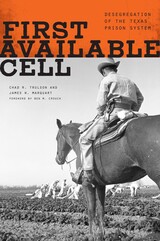
Decades after the U.S. Supreme Court and certain governmental actions struck down racial segregation in the larger society, American prison administrators still boldly adhered to discriminatory practices. Not until 1975 did legislation prohibit racial segregation and discrimination in Texas prisons. However, vestiges of this practice endured behind prison walls. Charting the transformation from segregation to desegregation in Texas prisons—which resulted in Texas prisons becoming one of the most desegregated places in America—First Available Cell chronicles the pivotal steps in the process, including prison director George J. Beto's 1965 decision to allow inmates of different races to co-exist in the same prison setting, defying Southern norms.
The authors also clarify the significant impetus for change that emerged in 1972, when a Texas inmate filed a lawsuit alleging racial segregation and discrimination in the Texas Department of Corrections. Perhaps surprisingly, a multiracial group of prisoners sided with the TDC, fearing that desegregated housing would unleash racial violence. Members of the security staff also feared and predicted severe racial violence. Nearly two decades after the 1972 lawsuit, one vestige of segregation remained in place: the double cell. Revealing the aftermath of racial desegregation within that 9 x 5 foot space, First Available Cell tells the story of one of the greatest social experiments with racial desegregation in American history.
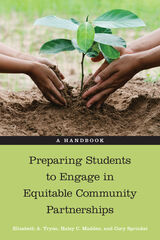
Preparing Students to Engage in Equitable Community Partnerships provides a wealth of valuable resources and activities to help impart ideas of identity, privilege, oppression, bias, and power dynamics to best support students and community in these relationships. Believing that authenticity only comes about in an atmosphere of mutual respect and self-awareness, the authors argue for cultural and intellectual humility.
Each chapter looks at topics and issues through different lenses, complete with underlying theories, and relates those discussions to concrete classroom activities, facilitation strategies, and scholarly frames. In addition, the authors include contributions from a diverse group of practitioners at community colleges, private colleges, historically Black colleges and universities, and minority-serving institutions.
Preparing Students to Engage in Equitable Community Partnerships is a much-needed, comprehensive resource for community-engaged professionals as they prepare students for building relationships when entering a community for learning or research purposes.
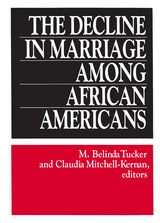
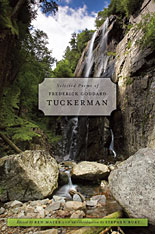
Unlike Whitman, Dickinson, or Wordsworth, Frederick Goddard Tuckerman (1821–1873) never wanted to start a revolution in poetry. Nor did he—like Longfellow or his friend Tennyson—capture or ever try to represent the spirit of his age. Yet he remains one of America’s most passionate, moving, and technically accomplished poets of the nineteenth century: a New Englander through and through, a poet of the outdoors, wandering fields and wooded hillsides by himself, driven to poetry and the solitude of nature by the loss of his beloved wife. This is the persona we encounter again and again in Tuckerman’s sonnets and stanzaic lyric poetry.
Correcting numerous errors in previous editions, this is the first reliable reading edition of Tuckerman’s poetry. Ben Mazer has painstakingly re-edited the poems in this selection from manuscripts at the Houghton Library. Included in this generous selection are several important poems omitted in The Complete Poems of Frederick Goddard Tuckerman. In her introduction to the volume, Stephanie Burt celebrates an extraordinary poet of mourning and nature—an anti-Transcendental—who in many ways seems closer to writers of our own century than to, say, Emerson or even Thoreau. Readers who enjoy the verse of Richard Wilbur, Anthony Hecht, or Mary Oliver will find much to admire in Tuckerman’s poetry.
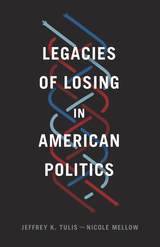
With Legacies of Losing in American Politics, Jeffrey K. Tulis and Nicole Mellow rethink three pivotal moments in American political history: the founding, when anti-Federalists failed to stop the ratification of the Constitution; the aftermath of the Civil War, when President Andrew Johnson’s plan for restoring the South to the Union was defeated; and the 1964 presidential campaign, when Barry Goldwater’s challenge to the New Deal order was soundly defeated by Lyndon B. Johnson. In each of these cases, the very mechanisms that caused the initial failures facilitated their eventual success. After the dust of the immediate political defeat settled, these seemingly discredited ideas and programs disrupted political convention by prevailing, often subverting, and occasionally enhancing constitutional fidelity. Tulis and Mellow present a nuanced story of winning and losing and offer a new understanding of American political development as the interweaving of opposing ideas.

Honorable Mention, Franklin Buchanan Prize for Curricular Materials, Association for Asian Studies and the Committee for Teaching about Asia
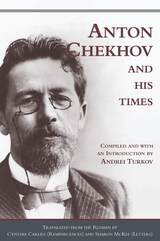
This anthology comprises reminiscences by a number of Anton Pavlovich Chekhov’s contemporaries, including the artist Konstantin Korovin, the writer Maxim Gorky, and Chekhov’s wife, Olga Knipper-Chekhova, and numerous letters written by Chekhov to his fellow writers and artists, family, publishers, and others.
Now available for the first time in English in America, these sixty-eight letters and ten essay-length reminiscences trace the development of Chekhov’s personality and talent, opening a window into the life and times of one of the world’s greatest short-story writers and playwrights. These perspectives on his family life and marriage, his early works, the stage productions of his plays, his literary successes, and the philosophies behind his writing create a rich biography of Chekhov that will reward writers, scholars, and all lovers of literature.
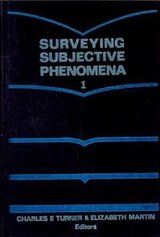
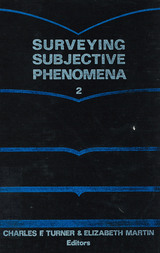
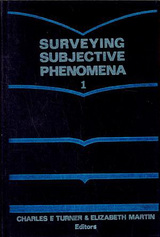
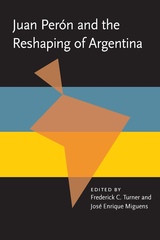
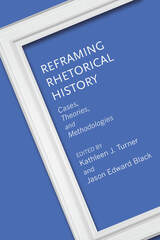
Kathleen J. Turner’s 1998 multicontributor volume Doing Rhetorical History: Concepts and Cases quickly became a foundational text in the field, and the studies in the book have served as an important roadmap for scholars undertaking such scholarship. In the decades since its publication, developments in rhetorical-historical research, engaged scholarship, and academic interventionism have changed the practice of rhetorical history tremendously.
To address this shift, Turner and Jason Edward Black have edited a much-anticipated follow-up volume: Reframing Rhetorical History: Cases, Theories, and Methodologies, which reassesses both history as rhetoric and rhetorical history as practice. This new book attends to a number of topics that have become not just hot-button issues in rhetorical scholarship but have entrenched themselves as anchors within the field. These include digital rhetoric, public memory, race and ethnicity, gender dynamics and sexualities, health and well-being, transnationalism and globalization, social justice, archival methods and politics, and colonialism and decoloniality.
The sixteen essays are divided into four major parts: “Digital Humanities and Culture” introduces methods and cases using twenty-first century technologies; “Identities, Cultures, and Archives” addresses race and gender within the contexts of critical race theory, gendered health rhetoric, race-based public memory, and class/sectionalism; “Approaches to Nationalism and Transnationalism” explores ideologies related to US and international cultures; and “Metahistories and Pedagogies” explores creative ways to approach the frame of metarhetorical history given what the field has learned since the publication of Doing Rhetorical History.
CONTRIBUTORS
Andrew D. Barnes / Jason Edward Black / Bryan Crable / Adrienne E. Hacker Daniels / Matthew deTar / Margaret Franz / Joe Edward Hatfield / J. Michael Hogan / Andre E. Johnson / Madison A. Krall / Melody Lehn / Lisbeth A. Lipari / Chandra A. Maldonado / Roseann M. Mandziuk / Christina L. Moss / Christopher J. Oldenburg / Sean Patrick O’Rourke / Daniel P. Overton / Shawn J. Parry-Giles / Philip Perdue / Kathleen J. Turner

Histories of Southeastern Archaeology originated as a symposium at the 1999 Southeastern Archaeological Conference (SEAC) organized in honor of the retirement of Charles H. McNutt following 30 years of teaching anthropology. Written for the most part by members of the first post-depression generation of southeastern archaeologists, this volume offers a window not only into the archaeological past of the United States but also into the hopes and despairs of archaeologists who worked to write that unrecorded history or to test scientific theories concerning culture.
The contributors take different approaches, each guided by experience, personality, and location, as well as by the legislation that shaped the practical conduct of archaeology in their area. Despite the state-by-state approach, there are certain common themes, such as the effect (or lack thereof) of changing theory in Americanist archaeology, the explosion of contract archaeology and its relationship to academic archaeology, goals achieved or not achieved, and the common ground of SEAC.
This book tells us how we learned what we now know about the Southeast's unwritten past. Of obvious interest to professionals and students of the field, this volume will also be sought after by historians, political scientists, amateurs, and anyone interested in the South.
Additional reviews:


Language in Use creatively brings together, for the first time, perspectives from cognitive linguistics, language acquisition, discourse analysis, and linguistic anthropology. The physical distance between nations and continents, and the boundaries between different theories and subfields within linguistics have made it difficult to recognize the possibilities of how research from each of these fields can challenge, inform, and enrich the others. This book aims to make those boundaries more transparent and encourages more collaborative research.
The unifying theme is studying how language is used in context and explores how language is shaped by the nature of human cognition and social-cultural activity. Language in Use examines language processing and first language learning and illuminates the insights that discourse and usage-based models provide in issues of second language learning. Using a diverse array of methodologies, it examines how speakers employ various discourse-level resources to structure interaction and create meaning. Finally, it addresses issues of language use and creation of social identity.
Unique in approach and wide-ranging in application, the contributions in this volume place emphasis on the analysis of actual discourse and the insights that analyses of such data bring to language learning as well as how language shapes and reflects social identity—making it an invaluable addition to the library of anyone interested in cutting-edge linguistics.
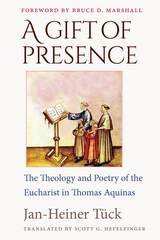


Where is the line that separates the “normal” from the “abnormal”? Liubov, a young Ukrainian woman of small nobility, struggles with this question in Lesia Ukrainka’s The Blue Rose. Living in Ukraine at the turn of the twentieth century, she finds herself outside the norms for a woman: she reads “thick books,” follows music and art, and is interested in science and psychology. She hosts a salon and challenges men in discussions about politics and culture. Liubov is also an orphan whose mother died in an asylum, and she worries about inheriting her mother’s disease as well as passing it on to future children. When Liubov falls in love with Orest, she proposes a radical solution to her dilemma: to pursue something as rare as a blue flower—“pure love” that foregoes the physical and abandons the requirement of marriage and motherhood.
In her commanding debut as a playwright, Ukrainka created a deep psychological rendering of an unattainable ideal. The Blue Rose highlights themes such as women’s struggles for liberation, social progress and its reliance on science, and resistance to change in traditional societies. Written in sophisticated Ukrainian, Ukrainka’s nuanced play helped Ukrainian culture break free of the Russian imperial mold that sought to first provincialize and then erase it. Presented here in contemporary English translation, The Blue Rose illuminates Ukraine’s intellectual history and its connections with Western culture.

Where is the line that separates the “normal” from the “abnormal”? Liubov, a young Ukrainian woman of small nobility, struggles with this question in Lesia Ukrainka’s The Blue Rose. Living in Ukraine at the turn of the twentieth century, she finds herself outside the norms for a woman: she reads “thick books,” follows music and art, and is interested in science and psychology. She hosts a salon and challenges men in discussions about politics and culture. Liubov is also an orphan whose mother died in an asylum, and she worries about inheriting her mother’s disease as well as passing it on to future children. When Liubov falls in love with Orest, she proposes a radical solution to her dilemma: to pursue something as rare as a blue flower—“pure love” that foregoes the physical and abandons the requirement of marriage and motherhood.
In her commanding debut as a playwright, Ukrainka created a deep psychological rendering of an unattainable ideal. The Blue Rose highlights themes such as women’s struggles for liberation, social progress and its reliance on science, and resistance to change in traditional societies. Written in sophisticated Ukrainian, Ukrainka’s nuanced play helped Ukrainian culture break free of the Russian imperial mold that sought to first provincialize and then erase it. Presented here in contemporary English translation, The Blue Rose illuminates Ukraine’s intellectual history and its connections with Western culture.

Cassandra, the daughter of King Priam of Troy, is cursed with the gift of true prophecies that are not believed by anyone. She foretells the city’s fall should Paris bring Helen as his wife, as well as the death of several of Troy’s heroes and her family. The classic myth turns into much more in Lesia Ukrainka’s rendering: Cassandra’s prophecies are uttered in highly poetic language—fitting for the genre of the work—and are not believed for that reason, rather than because of Apollo’s curse. Cassandra as poet and as woman are the focal points of the drama.
Cassandra: A Dramatic Poem encapsulates the complexities of Ukrainka’s late works: use of classical mythology and her intertextual practice; intense focus on issues of colonialism and cultural subjugation—and allegorical reading of the asymmetric relationship of Ukrainian and Russian culture; a sharp commentary on patriarchy and the subjugation of women; and the dilemma of the writer-seer who knows the truth and its ominous implications but is powerless to impart that to contemporaries and countrymen.
This strongly autobiographical work commanded a significant critical reception in Ukraine and projects Ukrainka into the new Ukrainian cultural canon. Presented here in a contemporary and sophisticated English translation attuned to psychological nuance, it is sure to attract the attention of the modern-day reader.


(1) It should introduce the fundamental principles of circuit analysis and equip the student with the skills necessary to analyze any planar, linear circuit, including those driven by dc or ac sources, or by more complicated waveforms such as pulses and exponentials.
(2) It should start the student on the journey of circuit design.
(3) It should guide the student into the seemingly magical world of domain transformations—such as the Laplace and Fourier transforms, not only as circuit analysis tools, but also as mathematical languages that are “spoken” by many fields of science and engineering.
(4) It should expand the student’s technical horizon by introducing him/her to some of the many allied fields of science and technology.
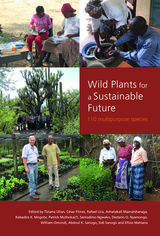
The publication forms one of the main dissemination achievements of The MGU–Useful Plants Project, developed under Kew’s Millennium Seed Bank partnership, to conserve and use sustainably wild plants important for rural communities in Botswana, Kenya, Mali, South Africa, and Mexico. Institutional partners led the project in each country, involving rural communities, local authorities, and schools. A scientific approach was applied throughout.
The core of this book presents detailed species profiles of 110 plants selected for their importance to communities and livelihoods. The profiles are structured in a clear and consistent format, providing information on taxonomy and nomenclature, plant descriptions, fruit and seed structures, distribution, habitat, uses, known hazards and safety, conservation status, seed conservation, propagation, and trading, along with key references from the literature.

"Some [essays], like Joseph Brodsky's tribute, are touchingly personal. Others, like G. A. Cohen's 'Isaiah's Marx, and Mine,' mingle personal reminiscences with a more theoretical look at Berlin's ideas. . . . The volume is a fitting tribute to a thinker famed for his erudition, eclecticism, and clarity of style."—Merle Rubin, The Christian Science Monitor
"One of the many merits of this rich and rewarding collection is the sense-very imperfectly conveyed here-it transmits of the tone of Berlin's writings and conversation, of the multiplicity of his interests and the variety of his achievements. . . . The essays testify to the character of Berlin's mind as a luminous prism, in which the cultural traditions of Russia, England and Judaism are marvelously refracted."—John Gray, Times Literary Supplement
"[T]he collection testifies to the learning and profundity of Berlin's thought and, by way both of reminiscence and influence, to the charm and gaity of its expression."—Anthony Quinton, The Times of London

The novel’s central character, Augusto, is a pampered, aimless young man who falls in love with Eugenia, a woman he randomly spots on the street. Augusto’s absurd infatuation offers an irresistible target for the philosophical ruminations of Unamuno’s characters, including Eugenia’s guardian aunt and “theoretical anarchist” uncle, Augusto’s comical servants, and his best friend, Victor, an aspiring writer who introduces him to a new, groundbreaking type of fiction. In a desperate moment, Augusto consults his creator about his fate, arguing with Unamuno about what it means to be “real.” Even Augusto’s dog, Orfeo, offers his canine point of view, reflecting on the meaning of life and delivering his master’s funeral oration.
Fog is a comedy, a tragic love story, a work of metafiction, and a novel of ideas. After more than a century, Unamuno’s classic novel still moves us, makes us laugh, and invites us to question our assumptions about literature, relationships, and mortality.

Roland Barthes's critical writings promoted postwar movements ranging from the New Novel to the Parisian version of structural analysis. As a theorist, he was inspired in large part by semiology, the general science of signs set forth in the work of Ferdinand de Saussure. This volume presents a challenging variety of essays that elaborate and comment on specific elements in the evolution of Barthes's study of signs, from the revolutionary semiology of his 1957 Mythologies to the semioclasm and semiotrophy of such post-1960s' books as S/Z, The Pleasure of the Text, and A Lover's Discourse.
The nine essays of Signs in Culture have been organized to express the striking interplay of language and writing as the ethics of form Barthes first described in his 1953 Writing Degree Zero. Each essay serves as a pivotal critical exercise beginning with or departing from Barthes's writing. Each essayist thus engages an expanded semiology which inscribes the life of signs within the institutions and practices that literary critics, philosophers, and historians alike have seen as constituting the elements of a cultural study and critique.
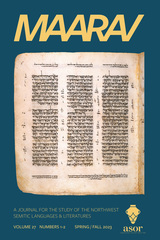







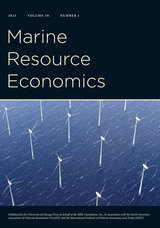
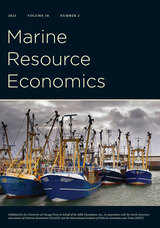
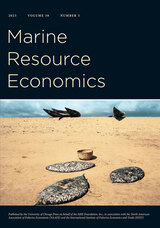
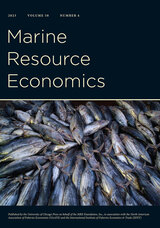
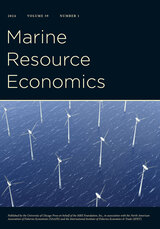

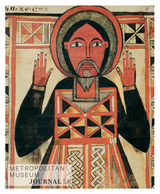
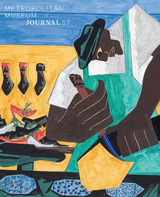

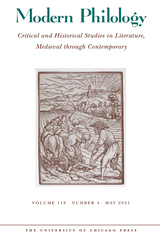

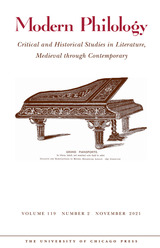
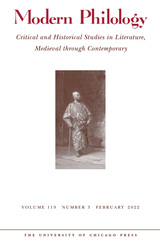
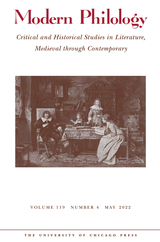
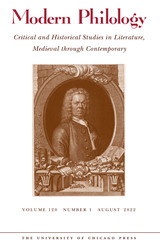
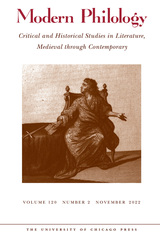
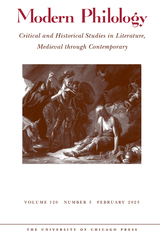
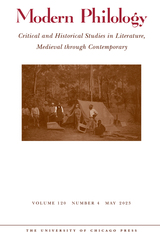
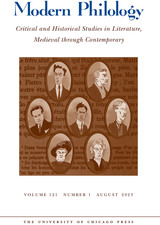
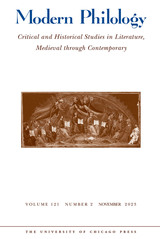
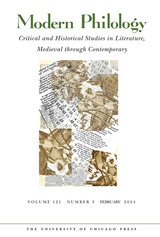





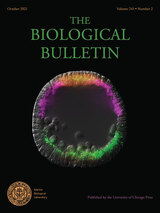
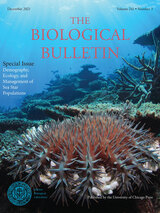
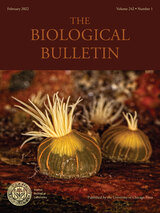

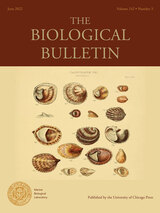
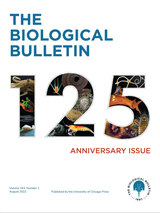
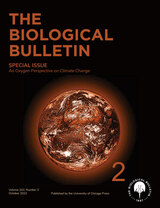
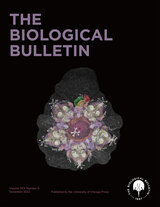
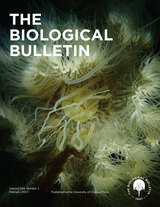
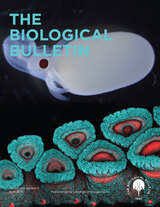


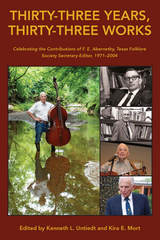

This fifth edition in the International Engagement on Cyber series focuses on securing critical infrastructure. The centrality of critical infrastructure in the Obama administration’s recent cybersecurity initiatives demonstrates the timeliness of this topic for greater review and scholarly input. In this manner, articles in this issue uncover the role and extent of international law and norms, public-private cooperation, as well as novel ways of conceptualizing ‘security’ in efforts to improve critical infrastructure cybersecurity. Other pieces provide case studies on the telecommunications, power, and energy sectors to generate an in-depth understanding of specific responses to security concerns in different infrastructure areas.
Additional contributions examine regulatory activities in cyberspace, the potential value of cryptocurrency, the evolution of cloud computing, cybersecurity in Brazil, as well as the integration of cyber in the military strategies of Russia, China, and the United States. The diversity of these topics demonstrates the Journal’s continued commitment to pursuing the myriad facets that compromise the field of cyber.
Please note, this special issue is not included in the subscription to the journal.

Each spring, the Cyber Project at Georgetown University’s Institute for Law, Science, and Global Security convenes a conference of leading international experts from academia, the private sector, and government to address cutting-edge issues in cybersecurity.
This issue begins with a group of articles under the theme A Post-Snowden Cyberspace, describing how Edward Snowden’s revelations directly or indirectly changed the way the global community understands cybersecurity and cyber law. Other topics covered include cyber weapons, cyber deterrence, Japan’s cybersecurity strategy, data protection in the private sector, executive accountability for data breaches, minimum security standards for connected devices, and the problem of underinvestment in cybersecurity.
Please note, this special issue is not included in the subscription to the journal.
The Georgetown Journal of International Affairs is the official publication of the Edmund A. Walsh School of Foreign Service at Georgetown University. Each issue of the journal provides readers with a diverse array of timely, peer-reviewed content penned by top policymakers, business leaders, and academic luminaries.

This is the first field guide to comprehensively cover these species, providing full-color photographs, distribution maps, and species descriptions, plus keys to the grasses and sedges of the area. This guide is accessible even to non-botanists and also provides an opportunity for visitors to be part of a citizen science program contributing sightings and improving our knowledge of the introduced flora of South Georgia.

Watersheds, Bays, and Bounded Seas provides state-of-the-science information about these complex systems and identifies best management practices to preserve them. With contributions by natural and social scientists, the book examines both the political and biophysical forces affecting semi-enclosed marine systems.
SEMS comprise a substantial portion of the coasts—areas with high population density—and we rely on them for often-competing services such as navigation and transport, disposal of waste, provision of food, extraction of minerals, and leisure. The book describes how human activities could irrevocably alter these fragile ecosystems, exploring threats from runoff to climate change. It also addresses the unique challenges of managing SEMS, including cooperation between multiple nations.
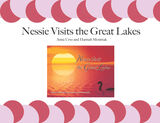
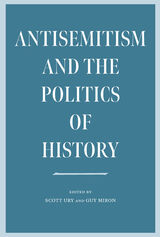
The book begins with a revised and updated version of David Engel’s seminal essay “Away from a Definition of Antisemitism.” Subsequent contributions by renowned specialists in ancient, medieval, and modern history, religious studies, and other fields explore the various and changing definitions and uses of the term “antisemitism” in a range of contexts, including ancient Rome and Greece, the Byzantine Empire, medieval Europe, early modern and modern Europe, North America, and the United Kingdom. The volume also includes a section that focuses on the Second World War, including the Holocaust and its memory. Engel offers a contemporary response to conclude the book.
First published in Hebrew in 2020 as a special issue of the journal Zion: A Quarterly for Research in Jewish History in cooperation with the Zalman Shazar Center in Jerusalem, this compelling collection has already had an impact on the study of antisemitism in Israel. It is certain to become a critical resource for scholars, policymakers, and journalists researching antisemitism, Holocaust studies, and related fields.
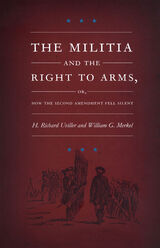
—Amendment II, United States Constitution
The Second Amendment is regularly invoked by opponents of gun control, but H. Richard Uviller and William G. Merkel argue the amendment has nothing to contribute to debates over private access to firearms. In The Militia and the Right to Arms, or, How the Second Amendment Fell Silent, Uviller and Merkel show how postratification history has sapped the Second Amendment of its meaning. Starting with a detailed examination of the political principles of the founders, the authors build the case that the amendment's second clause (declaring the right to bear arms) depends entirely on the premise set out in the amendment's first clause (stating that a well-regulated militia is necessary to the security of a free state). The authors demonstrate that the militia envisioned by the framers of the Bill of Rights in 1789 has long since disappeared from the American scene, leaving no lineal descendants. The constitutional right to bear arms, Uviller and Merkel conclude, has evaporated along with the universal militia of the eighteenth century.
Using records from the founding era, Uviller and Merkel explain that the Second Amendment was motivated by a deep fear of standing armies. To guard against the debilitating effects of militarism, and against the ultimate danger of a would-be Caesar at the head of a great professional army, the founders sought to guarantee the existence of well-trained, self-armed, locally commanded citizen militia, in which service was compulsory. By its very existence, this militia would obviate the need for a large and dangerous regular army. But as Uviller and Merkel describe the gradual rise of the United States Army and the National Guard over the last two hundred years, they highlight the nation's abandonment of the militia ideal so dear to the framers. The authors discuss issues of constitutional interpretation in light of radically changed social circumstances and contrast their position with the arguments of a diverse group of constitutional scholars including Sanford Levinson, Carl Bogus, William Van Alstyne, and Akhil Reed Amar.
Espousing a centrist position in the polarized arena of Second Amendment interpretation, this book will appeal to those wanting to know more about the amendment's relevance to the issue of gun control, as well as to those interested in the constitutional and political context of America's military history.



The Roman epic retelling of the quest for the golden fleece.
Valerius Flaccus, Gaius, Latin poet who flourished in the period ca. AD 70–90, composed in smooth and sometimes obscure style an incomplete epic Argonautica in eight books, on the auest for the golden fleece. The poem is typical of his age, being a free re-handling of the story already told by Apollonius Rhodius, to whom he is superior in arrangement, vividness, and description of character. Valerius’ poem shows much imitation of the language and thought of Virgil, and much learning. The chief interest of the epic lies in the relationship between Medea and Jason, especially the growth of Medea’s love, where Valerius is at his best. The long series of adventures and various Roman allusions suggest that the poet meant to do honor to Vespasian (to whom the epic is dedicated) with special reference to that emperor’s ships in waters around Britain.

Completely reorganized to reflect the growing intricacy of the study of ASL linguistics, the 5th edition presents 26 units in seven parts. Part One: Introduction presents a revision of Defining Language and an entirely new unit, Defining Linguistics. Part Two: Phonology has been completely updated with new terminology and examples. The third part, Morphology, features units on building new signs, deriving nouns from verbs, compounds, fingerspelling, and numeral incorporation. Part Four: Syntax includes units on basic sentence types, lexical categories, word order, time and aspect, verbs, and the function of space. The fifth part, Semantics, offers updates on the meanings of individual signs and sentences.
Part Six: Language in Use showcases an entirely new section on Black ASL in the unit on Variation and Historical Change. The units on bilingualism and language and ASL discourse have been thoroughly revised and updated, and the Language as Art unit has been enhanced with a new section on ASL in film. Two new readings update Part Seven, and all text illustrations have been replaced by video stills from the expanded video content. Also, signs described only with written explanations in past editions now have both photographic samples in the text and full demonstrations in the video.
You can find the supplemental video content on the Gallaudet University Press YouTube channel.
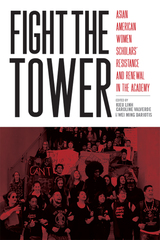
However, change is in the air. Fight the Tower is a continuation of the Fight the Tower movement, which supports women standing up for their rights to claim their earned place in academia and to work for positive change for all within academic institutions. The essays provide powerful portraits, reflections, and analyses of a population often rendered invisible by the lies that sustain intersectional injustices in order to operate an oppressive system.
READERS
Browse our collection.
PUBLISHERS
See BiblioVault's publisher services.
STUDENT SERVICES
Files for college accessibility offices.
UChicago Accessibility Resources
home | accessibility | search | about | contact us
BiblioVault ® 2001 - 2024
The University of Chicago Press




